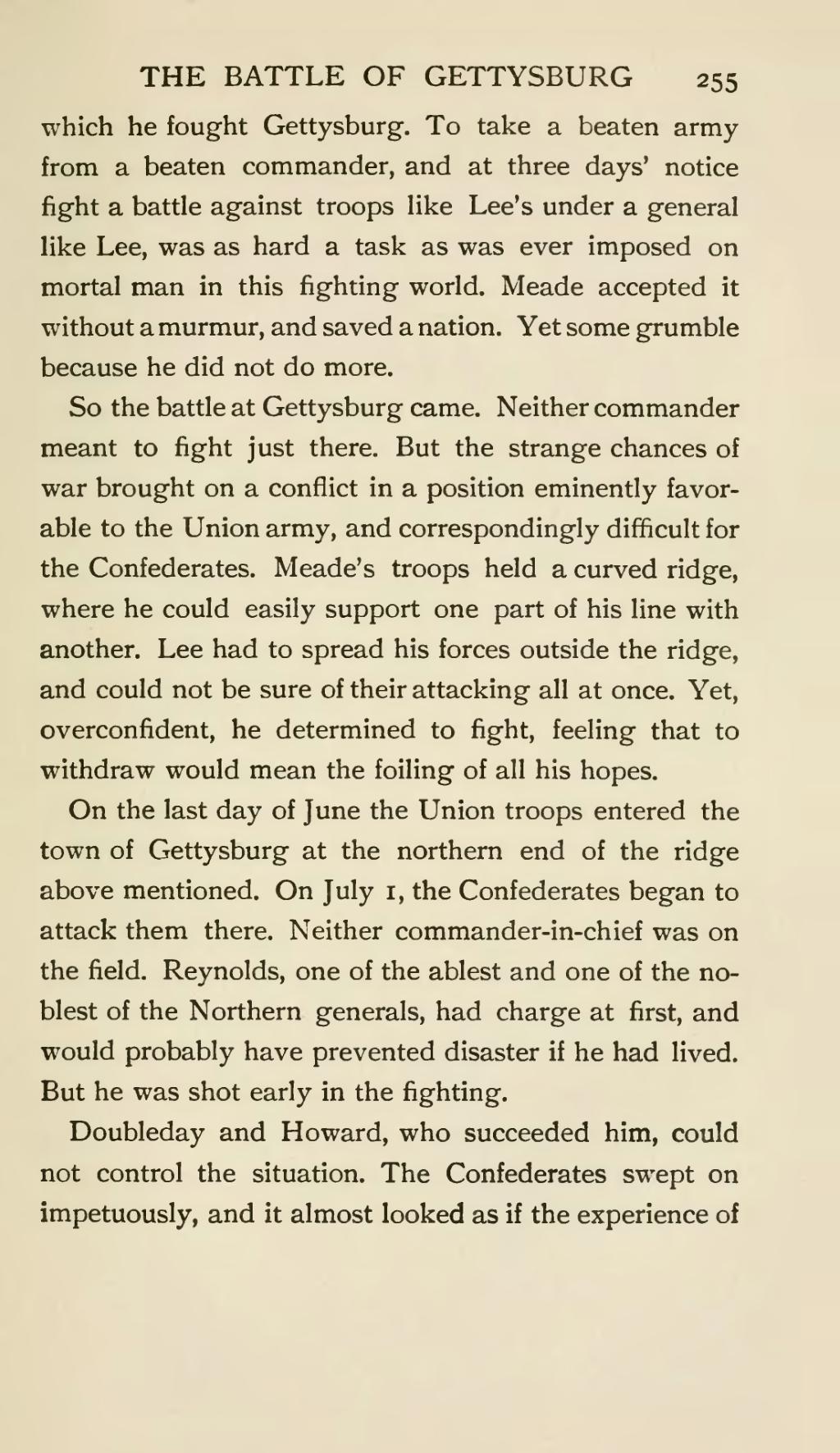which he fought Gettysburg. To take a beaten army from a beaten commander, and at three days' notice fight a battle against troops like Lee's under a general like Lee, was as hard a task as was ever imposed on mortal man in this fighting world. Meade accepted it without a murmur, and saved a nation. Yet some grumble because he did not do more.
So the battle at Gettysburg came. Neither commander meant to fight just there. But the strange chances of war brought on a conflict in a position eminently favor- able to the Union army, and correspondingly difficult for the Confederates. Meade's troops held a curved ridge, where he could easily support one part of his line with another. Lee had to spread his forces outside the ridge, and could not be sure of their attacking all at once. Yet, overconfident, he determined to fight, feeling that to withdraw would mean the foiling of all his hopes.
On the last day of June the Union troops entered the town of Gettysburg at the northern end of the ridge above mentioned. On July i, the Confederates began to attack them there. Neither commander-in-chief was on the field. Reynolds, one of the ablest and one of the no- blest of the Northern generals, had charge at first, and would probably have prevented disaster if he had lived. But he was shot early in the fighting.
Doubleday and Howard, who succeeded him, could not control the situation. The Confederates swept on impetuously, and it almost looked as if the experience of
�� �
